13 November 2014 Blinds
I jog around the park I still have arthritis in my left knee, but I manage to get round the park. A Very busy day Chesmist Co op, District nurse Blinds man
Mary’s back much better today, breakfast weight down rabbit for tea and her back pain is still there but decreasing.
Obituary:
Raleigh Trevelyan – obituary
Raleigh Trevelyan was an author and historian who wrote an acclaimed biography of his kinsman Sir Walter Raleigh

The author and historian Raleigh Trevelyan
6:51PM GMT 11 Nov 2014
Raleigh Trevelyan, who has died aged 91, was descended from two eminent West Country families, whose stories he drew on to become a well-known historian.
Trevelyan claimed only a “tenuous family connection” to Sir Walter Raleigh, after whom he was named. But from the early 1990s he spent 10 years retracing the Elizabethan adventurer’s footsteps for an acclaimed biography, published in 2002. Raleigh had been beheaded for treason in 1618, but not before he had founded the first English settlement in the New World; introduced potatoes to Ireland and tobacco to England; and led England’s defeat of the Spanish Armada.
Some historians had claimed that Raleigh had exaggerated, even lied about, the abundance of riches in the New World in the hope of securing financial backing. But Trevelyan’s first-hand observations frequently confirmed his relative’s accounts of American landscape, wildlife and native practices. Most crucial to Raleigh’s reputation was his verification of both silver workings and gold deposits close to where Raleigh claimed they were in Guiana.
Trevelyan had been born in India into a family whose connection with the country stretched back to the 18th century. Ten relatives had been killed in the massacre of Cawnpore in 1858 and his ancestors included C E Trevelyan, founder of the British Civil Service and later governor of Madras who, with his brother-in-law, Lord Macaulay, was responsible for the decision to base the Indian educational system on instruction in English. Other relatives included the historian G M Trevelyan and the poet R C Trevelyan.
In The Golden Oriole (1987) Trevelyan retraced his family’s presence in India, combining his own travels with family photographs, memoirs and interviews, to provide a compelling memoir of the British in India, and a journey into his own past.
Trevelyan became particularly known as a writer about Italy, a country which he came to love in the post-war years, but which he had first encountered under the grimmest of circumstances in March 1944 when, as a 20-year-old officer who had never before seen action, he and his battalion were sent as reinforcements to the beachhead at Anzio.
The resulting memoir, The Fortress, based on the diaries he kept at the time and published in 1956, was a vivid and harrowing account of one of the most brutal actions of the Second World War, in which Trevelyan himself earned a mention in despatches.

Raleigh Trevelyan
His account was notable not only for its quirky detail – the inflated bodies of white oxen that had wandered on to a minefield, the nightingales that sang through the worst of the carnage – but also for his painfully honest account of how the individual responds to the terror of being under fire, an experience that weighed on him so heavily that, despite his love of Italy, he avoided going back to Anzio for many years.
In 1968 he did return and subsequently wrote an article for The Observer in which he described how the war had scarred him psychologically. He recalled, for example, how, in an act of bravado born out of fear of being thought afraid, he had randomly shot and killed a German soldier he had spotted 50 yards from the Allied position, combing his hair “as if he were a cat being stroked”. “Now I look back on the incident I realise I did it to show off in front of the men – and I was very aware afterwards that they had admired me for it,” he wrote. But when a friend greeted him with the words: “Hello, Killer, you’re in your element at last,” in a flash, Trevelyan recalled, “all my defences had been demolished”.
On May 23 1944, during the breakout from Anzio, the Green Howards battalion to which he was attached lost 230 men, some of whose deaths he blamed on himself. “Instead of plunging into the scrub and thus taking German machine-gun posts from the rear, in accordance with the basic rules drummed into me at Octu, I took a section of men along the outside perimeter,” he wrote. “A Spandau opened up… Everyone… in the section had been hit, either killed or badly wounded… The memory of what I had done to Corporal Peter, Lance Corporal Atkinson and the others stayed raw and ragged on my conscience for years.”
After the war Trevelyan had been goaded to write bitter articles about the generals and politicians who had planned the beachhead landings: “The men in my platoon had every reason to believe – as I did – that their leaders… were working to some sort of coordinated plan… I now know that we were all utterly mistaken.” But after revisiting the scene in 1968, he was inclined to be more charitable. “I, too, had done stupid, disastrous, dreadful things at Anzio. I had been frightened, exhausted, vain.” His return “was an exorcism. I was free of Anzio for ever”.

Walter Raleigh Trevelyan was born on July 6 1923 at Port Blair in the Andaman Islands, where his father was in charge of the garrison. He was six when his family and nanny trekked for three weeks on horseback to Gilgit, near the North West Frontier, the mountainous centre court of the “Great Game”, where hill rajas claimed descent from Alexander the Great, golden orioles sang and the air was thick with rumours of spies. There were just 19 Britons there to rule an area the size of Wales.
His two idyllic years in Gilgit came to an end when he was sent back to boarding school in England at the age of eight, after which he stayed with relatives and family friends during the holidays and rarely saw his parents. After Winchester, he began his wartime service in the Rifle Brigade and was sent first to Algiers, then, on attachment to the Green Howards, to Anzio.
Towards the end of 1944, back with the Rifle Brigade, Trevelyan got a job in the military mission in Rome, where he remained for two years, falling in love with central Italy. Later, with the help of German and Italian friends, he wrote Rome ’44: The Battle for the Eternal City (1981), which provided a vivid account of what it had been like for soldiers and civilians on the other side of the conflict too.
Back in England, he was employed first in a merchant bank, then at the publishers Collins. While continuing to occupy senior positions in various publishing houses, he embarked on his career as a writer.
A Hermit Disclosed (1960) was a sympathetic portrait of a recluse called Jimmy Manson who lived for half his life as a hermit at Great Canfield, Essex, from 1900 until his death in 1942, and whose diaries Trevelyan had found in an attic. His love of Italy was reflected in Princes under the Volcano (1972), an account of the Sicilian “Marsala” dynasty established by the Yorkshire businessman Benjamin Ingham, and The Shadow of Vesuvius (1976), an account of the discovery of the remains of Pompeii and Herculaneum in the 18th century and the effect that discovery had on artistic taste. A Pre-Raphaelite Circle (1978) was an accessible study of the artistic movement, while Grand Dukes and Diamonds (1991) told the story of the Wernhers of Luton Hoo.
A dapper, somewhat diffident man, Raleigh Trevelyan shared his later years with Raul Balin, a Spaniard whose extrovert volubility complemented his companion’s self effacing reticence. At their homes in Shepherd Market, London, and in Cornwall they entertained generously until Balin’s death in 2004.
Raleigh Trevelyan, born July 6 1923, died October 23 2014
Guardian:
 The US mission is unclear Photograph: Gillian Blease
The US mission is unclear Photograph: Gillian Blease
US mission is unclear
Simon Jenkins’s article, Bombing Isis fails war’s key imperative (17 October), was a welcome critical comment on this, the latest phase in the Middle East war. However, I was perplexed by the apparent ambiguity he presented: the war “should be contained regionally” … “they may have to rampage themselves to exhaustion”, and war’s critical imperative, “that it be fought all out and ended quickly”.
Jenkins does not question the humanitarian rationale for the intervention, but US talk of saving Yazidis and Kurds quickly turned to disabling and destroying Isis, first in Iraq, and, then, in Syria.
The savagery of Isis and the need for humanitarian assistance are not in doubt, but the question that must surely be asked is what makes this humanitarian crisis worse than many others, and is Isis more brutal than the militias and jihadis on both sides of the Shia-Sunni divide?
In early August when the US progressed from air surveillance to bombing, when the vital Mosul dam and northern Iraqi oil fields were under threat, Barack Obama was broadcast on Australian public radio saying US national interests must be protected. He referred specifically to the many US personnel in Baghdad and those working in the oil industry in northern Iraq. Whether there is a wider goal to defeat Syria’s President Bashar al-Assad and weaken Iranian support of Iraq, it is difficult to know. However, it is clear enough that oil and armaments remain very much part of the picture.
Wherever the US marches, Australia will be sure to follow regardless of whatever their latest mission is really about, and without one question being raised.
Ally Fricker
Brady Creek, South Australia
Economic fairytales
Ha-Joon Chang does himself and his readers no favours by his partial explanation of the realities of the “Labour deficit” (24 October). He relates the balanced budget picture, 1997-2002, and notes that a 3.2% of GDP deficit, 2003-2007, was not connected to welfare spending. So what was it connected to? Chang does not tell us.
The answer that comes immediately to mind are the Bush-Blair wars in Afghanistan and Iraq. This is interesting in the context of the article by what follows – the deficit ballooned to 10.7% of GDP, 2009-2010. In other words, it was cheaper in terms of deficit spending, by 3.2% to 7.5%, to fight two wars than it was to bail out the financial sector that destroyed the economy in 2007. And the coalition government, like all governments around the world, still refuses to follow up that bailout with a regulatory environment that will prevent it from happening again or to prevent bankers from creating a financial system in which they actually benefit from economic distress, increasing their share of the total wealth enormously while the rest of us stagnate or lose ground.
That’s the real fairytale behind Tory claims of recovery. They are trying to convince us that averages that are being driven up by the disproportionate success of the very rich are improving the lives of the rest of us. They aren’t, and one just has to pay attention to personal pay packets and debt levels to realise it. It’s long past time to give up on fairytales and start understanding the real world. Then consign the purveyors of those fairytales to the opposition.
Keith Stotyn
Edmonton, Alberta, Canada
Is this the anthropocene?
At a climate change conference in 2000, Nobel laureate Paul Crutzen was so devastated by the evidence of widespread destructive influence of humans on the Earth’s environment that he coined the word anthropocene to describe a new epoch, triggered by James Watt’s invention of the coal-fired steam engine in 1754, followed over the ensuing two centuries by the prodigious combustion of ancient solar capital stored in fossil fuels, with consequent unprecedented release of greenhouse gases and parallel global warming.
The validity of Crutzen’s neologism is being examined at a predictably glacial rate by a commission, chaired by a geologist (Will humans define Earth’s next epoch?, 31 October). On the other hand, damage to the biosphere is proceeding at breakneck speed.
A sustainable future will depend on leaving ancient polluting non-renewable fossilised solar capital underground where it was formed, while adapting to using clean, endlessly renewable solar currency, whose capture and widespread application is now economically competitive with fossil fuels.
The main obstacles to progress are not scientific, but political and vested interests in fossil fuels. The chief economist of the International Energy Agency at its annual conference in 2013 declared that fossil-fuel subsidies are public enemy number one to sustainable energy development. Australia, which is hosting the G20 summit this month, has excluded any segment on climate change for discussion.
Bryan Furnass
Canberra, Australia
• For the International Commission on Stratigraphy, it is surely a worthwhile task to consider whether anthropocene is an appropriate term for the time period we live in. However, the question implies that humans will continue to shape this planet’s fortunes for a very long time to come. This seems to me to be a bold assumption, given that our species is obviously engaged in an all-out global war against the natural foundations of our very existence.
Egbert von Steuber
Lingen, Germany
It’s an Orwellian world
I’m surprised that George Monbiot didn’t mention George Orwell in his excellent opinion piece on the manipulative use of language by “the small number of people” who have “captured public life” in the modern world (31 October). Surprised because what he says about the euphemistic language currently used by the powers-that-be in our society corresponds very closely to the use of Newspeak by the Big Brother state in the terrifying setting of Orwell’s Nineteen Eighty-Four.
Whereas in the book people aren’t killed or assassinated but instead rendered “unpersons”, we now talk of “kinetic activity” (shooting and bombing) as a means of killing and maiming people.
In Orwell’s Big Brother state, language is reduced to its most prosaic, euphemistic essentials as a way of greatly limiting the capacity of ordinary citizens to think and act on dissenting thoughts, and corresponds to what is effectively the kind of mind control complained of by Monbiot
So, when it comes to language use (and in other respects) it’s an Orwellian world. In Newspeak: it is “doubleplusgood” that Monbiot has drawn our attention to the problem, and “doubleplusungood” that there seems to be very little we can do about it.
Terry Hewton
Adelaide, South Australia
Menopause and identity
To construe menopause primarily as a medical issue diminishes women (Left in the dark about menopause, 24 October). Hormone Replacement Therapy (HRT) is a reductionist answer to an intricate question. Does HRT simply assuage unnecessary suffering, or does it turn us into industrially mandated ageing Barbie dolls?
One of the problems is the word itself: menopause only encompasses ending, yet it’s a threshold as transformative as adolescence or childbirth. It’s a dying to one cycle in order to be reborn into the next, a becoming pregnant – at last – with one’s self. How do we re-constellate when sexuality is no longer the primary driver; when children – and the identity, community, belonging and purpose they embody – have left home; when employment falls away; when sexism is compounded by ageism?
Fifteen years ago, beset by hot flashes brutal as seizures, rabid anxiety and panic attacks, insomnia and exhaustion, I couldn’t have conceived of the woman who would eventually crawl out of that bruising chrysalis. Since I no longer have a positive cultural definition, I’m free to create my own, acutely aware that this is an opportunity granted neither to my foremothers nor to most of my living sisters.
Once I mourned the loss of hormonal ebb and flow; now I celebrate the equilibrium that’s replaced it. Tiredness hones and focuses my choices, as does mortality; in the light of death, what truly matters?
The in-loveness of becoming a grandmother commits me fiercely to the long view: to bequeathing to all the children of all species a future grounded in biospheric health and justice. The further I travel, the more fecund the path becomes.
Annie March
West Hobart, Tasmania, Australia
• I appreciated your piece about menopause, which calls attention to the pathetic lack of understanding in the conventional medical world regarding the physiology of menopausal women. I am a primary care physician whose principal clientele is menopausal women.
The Women’s Health Initiative Study was poorly designed and executed and misinterpretation of the results continue to promulgate. The severe hot flashes and insomnia common in these patients can be debilitating. But copious data delineates the risks of hormone depletion in menopausal women: sudden cardiac death, cognitive impairment, cancer, osteoporosis. Copious data also points to the safe and life saving solution – bio-identical hormone replacement.
It’s not rocket science. Physicians simply need to decide that providing life-saving treatment to menopausal women is important enough to take a few hours to educate themselves, rather than forcing the dangerous half-measures of antidepressants and prescription sleep meds on this very vulnerable population.
Joanne M Hillary
Spokane, Washington, US
Briefly
• Entry into a highly capital-intensive business like farming has always been difficult (Britain’s farmers keep their faith in the land, 24 October). While studying agriculture in the 60s we learned that the three routes of entry were patrimony, matrimony and parsimony. For me, patrimony was out, I couldn’t find a farmer’s daughter to marry and by the time parsimony would have worked the only plot of land I would need would be in the local churchyard.
So like many other young Britons over the centuries I emigrated to what were once called “the Colonies”.
Chris Kennedy
Stella, Ontario, Canada
• The final sentence in the piece on MI5’s surveillance of British historians (31 October), that Eric Hobsbawm was considered unsuitable for the Intelligence Corps, tells reams about the paranoia of post-war Britain. Numbers of social history authors and academics still owe so much to a well-thumbed copy of the Penguin edition of his Industry and Empire.
E Slack
L’Isle Jourdain, France
• With regard to Britain in Europe, David Cameron tells us he wants to do “what’s right for Britain” (24 October). That’s “Right” with a capital “R”, of course.
Peter Hoare
Ashwicken, UK
 Queen Elizabeth at the 2014 Remembrance Sunday ceremony at the Cenotaph in London Photograph: Luke Macgregor/Reuters
Queen Elizabeth at the 2014 Remembrance Sunday ceremony at the Cenotaph in London Photograph: Luke Macgregor/Reuters
Yes, it was poignant that the two anniversaries fell on Sunday, the one containing the seeds of what led indirectly to the other (A pause to recall an age of extremes, 10 November). But a third anniversary seems to have been forgotten, though the mass attacks on people and property because of race seems of the three the most likely to recur. It was of course Kristallnacht, when part of a nation were told that all their problems were caused by a minority group and stood by or joined in while Jewish homes, schools and hospitals were destroyed, over 1,000 synagogues were burned, 30,000 people put into concentration camps and many massacred that night alone. I saw no mention of it in the Guardian. Not much here in Germany either.
Brian Smith
Berlin, Germany
• Jonathan Freedland recalls 9 November 1989, and that Berlin’s “wall held no more”. There is another, newer wall, that was conceived in 1991 and separates Palestinian Arabs from Israeli Jews in the territory that Israel has forcibly seized from the Arabs. That wall is not coming down. It is still being built, with American and European money, intruding into Palestinian Arab space and destroying the Arabs’ lives, future and freedom. Ed Miliband knows this, and it is to his credit that he has had the courage to affirm his views of the modern state of Israel, and its works, even at the cost of Zionist funders. I realise I was right to vote for him, and will continue to do so.
Tim Llewellyn
London
• In the midst of rejoicing at the coming down of the Berlin Wall, let us still remember – and hang our heads in shame – that Walls are still erected, still impenetrable, in the Middle East, North Africa, Mexico, Korea … and Northern Ireland.
Godfrey Holmes
Withernsea, East Riding of Yorkshire
• There are two pictures on the front of Monday’s Guardian. One shows a woman with bare hands poking a living flower into a crack in a wall which a generation ago literally divided a nation. The other shows an older woman with gloved hands laying a wreath of artificial flowers on a monument that is all meaning and no purpose. What does either picture mean? The byword is “lest we forget”, but the truth is, no one alive now can personally remember a single one of the millions of young men who were persuaded to kill each other a century ago. So what are we pretending to remember? And wouldn’t the money spent on this collective contrivance be better spent helping still-living soldiers crippled in more recent wars?
John Bird
London
• Great that the government has given some war widows their pensions for life (Military widows will be allowed to remarry with pensions intact, theguardian.com, 8 November), but what about those of us who remarried? It appears that my first husband’s life is still worth less than that of other personnel whose death is attributable to their service. Is the government seriously proposing that we all take advantage of the current regulations and divorce our current partners, get our war widow pensions reinstated, as we are legally entitled to do, and then remarry our former husbands?
If that is the case then my husband and I are perfectly prepared to do so and invite everyone to our second wedding on 2 April 2015, which should be our 10th wedding anniversary.
Come on, prime minister, make it real equality for all war widows, not just a headline-grabbing opportunity on the eve of Remembrance Sunday.
Angela Haworth
Belper, Derbyshire
• As we contemplate the sea of poppies around the Tower of London, one for each member of the British armed forces who was killed in the first world war, it is salutary to remember that as many, if not slightly more, Rwandans were killed in the genocide of 1994 – in 100 days.
Peter Greaves
London
• Simon Lovelace suggests “a serious, workable and poignant solution” to the quandary felt in some quarters regarding the removal of the poppy installation (Letters, 8 November). I have one too, and it might allow for politicians of all stripes to display their “deep and honest care for the people of Britain” as espoused by Ian Flintoff (Letters, 8 November). I suggest that before the poppies are removed, and in the presence of the three “main party” leaders, the RAF should fly over the installation and drop the recently shredded expenses claims of parliamentarians together with a shredded copy of the provisions of habeas corpus. I’ve not yet been to the Tower. I might do if this suggestion were adopted. Meanwhile, I will proudly cast my vote for Ukip next May, as I have done for the past 10 years, and continue to be a subscriber to the Guardian.
Roger Gough
Minchinhampton, Gloucestershire
• The subtitles for the BBC Remembrance Sunday broadcast referred to “the women’s exhilarate your force association”. Is that what my mother was doing when she was in the WAAF?
Jennifer Henley
London
• In all the memorials, poppies etc, has anyone noticed any references to German or French (let alone Russian and Austrian) casualties in the first world war, all greater than British, even when those include the empire? Has the BBC considered, for instance, broadcasting All Quiet on the Western Front? At times it has all seemed to reflect the rise of Ukip.
Susan Reynolds
London
• On Remembrance Sunday the politicians who step forward one by one to lay wreaths on behalf of political parties should follow the example of the numerous high commissioners and the service chiefs, and consider uniting to lay their wreaths in a group. We don’t really need to gaze on our political leaders as individuals as the nation unites to pay tribute to those who have fought, died or suffered injury while serving our country.
Jane Barder
London
• Three pages on Remembrance Sunday’s official commemorations of “those who have fallen in a century of conflicts”, yet not a hint of the irony – not to mention the hypocrisy – of that phrase when it began as the “war to end all wars”. Nor a word about the alternative “white poppy for peace” events, eg the Veterans for Peace march under the banner “Never again”, followed by the laying of a white poppy wreath; Michael Morpurgo’s Movement for the Abolition of War lecture at the Imperial War Museum, on what he learned about the first world war that made him write his book War Horse; local events in Oxford, Liverpool, Halifax, Bromley, to name a few.
Then we have General Sir Nick Houghton, chief of the defence staff, blustering about “fixing his bayonet” to retain the ability to send more young men and women to kill and risk being be killed (Spending cuts: Defence chief pledges to fight on, 10 November. Apropos of which, and his and Gove’s comments on Oh! What a Lovely War, I forget which general it was who said “we mustn’t be squeamish about casualties”, but it could probably have been any of them. It was not so much lions led by donkeys, as “leaders” who had a callous disregard for the lives of their men in the pursuit of gaining a few yards of mud.
Frank Jackson
Former co-chair, World Disarmament Campaign
• I write in response to Dan Snow’s article (Remembrance Sunday should not be dominated by religion, theguardian.com, 6 November). I disagree with his view totally.
In Kempston last year there wasn’t going to be a parade or service on Remembrance Sunday as the British Legion were struggling with people to coordinate it. It was the religious-based 1st Kempston Boys Brigade company that got the parade sorted and the Kempston churches who worked together a few weeks before to arrange a service. I didn’t see the local humanists or other non-religious groups doing a lot to recognise our war heroes. If it had been left to them, they may have been forgotten altogether.
Remembrance Sunday is key, so our young know the cost of war and the benefits of doing everything we can to achieve peace. Surely that’s the important message, not peddling pro- or anti-religious messages.
If you want a non-religious ceremony, then organise it like the religious groups do, then we can really spread the importance of peace to even more people in this land. But please don’t criticise those religious groups who are actually prepared to do something so we can all remember – provide an alternative if that’s how you feel. Thanks to those who made that sacrifice, you are blessed with that opportunity.
Philip Timms
Company captain, 1st Kempston company, The Boys’ Brigade
 ‘Over 100 files containing information on alleged child abuse by members of the establishment are “missing” from the Home Office.’ Photograph: Graham Turner for the Guardian
‘Over 100 files containing information on alleged child abuse by members of the establishment are “missing” from the Home Office.’ Photograph: Graham Turner for the Guardian
Why are we surprised that the security services have been spying on lawyers (Report, 7 November), when the reputation of former senior government ministers is at stake? Likewise, when over 100 files containing information on alleged child abuse by members of the establishment are “missing” from the Home Office? The establishment – that shadowy beast – will always be ruthless in defence of its own. If there are people alive who are protected by the loss of those files, it’s more than likely that we, and the brave but so damaged abused, may only be permitted to know the truth long after the alleged perpetrators, and indeed some of the abused, have died. Is this one reason why these cases take so long to come to court?
Anna Ford
London
Two years ago Mancunians rejected plans for an elected mayor. Now Greater Manchester is being told that it will have an elected mayor regardless of the electorate’s wishes, making your headline (Mancunians granted power to elect mayor, 4 November) doubly wrong. The people of Greater Manchester will not be able to vote on whether or not they want a mayor, presumably because there is a risk of them giving the “wrong” answer again. Even worse, as Liverpool’s elected mayor has pointed out, “whatever they’re giving back to the region with this plan is nothing compared to what they are taking away”. Patrick Wintour has pointed out that this will undoubtedly portray “the chancellor in a favourable light in north-west marginal seats” (Report, theguardian.com, 3 November). The question is why the predominantly Labour leaders of Greater Manchester, after years of austerity, have signed up to this deal so close to a general election.
Declan O’Neill
Oldham, Greater Manchester
• While welcoming the idea of greater financial control promised by “Devo Manc”, I can’t help but be suspicious about George Osborne’s motives. His declaration to the people of Greater Manchester that “this will give Mancunians a powerful voice” may sit uneasily with the non-Mancunian majority in the region, and his trumpeting of a future mayor seems suspiciously like creating the opportunity for increased control by the Westminster-based party political establishment. Is he perhaps hoping to find one Boris to rule them all?
Chris Hardman
Manchester
• The main thrust of George Osborne’s proposals appears to be the re-creation of the former Greater Manchester metropolitan county council, but this time run by an elected mayor rather than elected councillors. The GM council was one of six in the great metropolitan areas (Greater London already had one) created by Tory secretary of state Peter Walker in 1974. Their role was essentially strategic. They were run by capable people and were generally considered a success. All seven councils were vindictively abolished in 1986 by Margaret Thatcher and Norman Tebbit essentially because they were run by the Labour party. So the re-establishment of a Greater Manchester strategic authority is to be welcomed and should be paralleled in other metropolitan areas.
The one huge caveat is that unless the new mayors are given full control over local tax levels, with no Whitehall interference, they will never exercise true governance of their areas.
Robin Wendt
Chester
• Newcastle city council leader Nick Forbes is right to assert that without a change in the unbalanced funding system “there will be nothing left for government to devolve to” (Slowly, a revolution is stirring in Britain’s most dynamic cities, 6 November). In addition to a reform of local government finance, three further measures are required: a return to and development of the Total Place policy introduced by the Labour government, in which the totality of public expenditure by local and central governments and its agencies would be reviewed and reshaped at local level; minimum national entitlements to key levels of service provision and benefits; and, preferably, the restoration of government offices in the regions, which acted as a valuable conduit between local government, the regions and central government until the present government abolished what a previous Conservative had usefully created.
Jeremy Beecham
Labour, House of Lords; former leader, Newcastle city council
Spectacular site: the Stonehenge monument is part of an enormous landscape with world heritage status. Photograph: Patrick Eden / Alamy/Alamy
John Cridland says there have been plans to upgrade the A303 since 2002 (CBI chief’s one big plea to the chancellor: give me a road tunnel under Stonehenge, 7 November). This is incorrect. I myself attended the first week-long public inquiry into the proposed tunnel scheme, held at the Red Lion in Salisbury, under Sir Jocelyn Stevens’ tenure as chair of English Heritage, in May 1995.
He mentions objections from English Heritage, the National Trust and the Druids, for whom Stonehenge is a sacred site. But far from objecting to the proposed “new” tunnel at the time, those Druid representatives present, including myself, fully endorsed the idea of the tunnel, provided it did not run closer than 660 yards to the site of the monument, in order to obviate vibration damage risk in the substrata.
With the old A344 road already closed to make way for the new visitors’ centre, removing that hopelessly congested strip of A303 from the ancient sacred landscape would in fact create a conservators’ dream – a 5,000-year-old giant stone temple in an almost pristine 5,000-year-old landscape, ie no visual or noise intrusion from the present-day motor car – while Mr Cridland and those from the south-west whose cause he champions speed on their way to London, noiselessly and out of sight, beneath it all.
Rollo Maughfling
Archdruid of Stonehenge and Britain
• The Stonehenge monument is only one part of an enormous and spectacular landscape, and it is not possible to tunnel anywhere near it without destroying the very thing that defines the area as of world importance and justifiably earns world heritage status. Should this really be sacrificed so that London second-homers can avoid the inconvenience of Sunday afternoon delays as they head back to the Great Wen from their Cornish getaways?
Dr Pauline Wilson
Sutton Courtenay, Oxfordshire
 New Zealand’s Patrick Tuipulotu in action in the pouring rain during England v New Zealand rugby union autumn international on 8 November 2014. Photograph: Tom Jenkins
New Zealand’s Patrick Tuipulotu in action in the pouring rain during England v New Zealand rugby union autumn international on 8 November 2014. Photograph: Tom Jenkins
I went to Twickenham on Saturday to watch the England v All Blacks international (England sunk by inability to think quickly under attack, 10 November). As a lifelong rugby fan, a straight man in his 60s, I could not believe that a bunch of men half my age watching a rugby match in the 21st century could be capable of hurling such nasty, foul-mouthed, racist, homophobic abuse at an openly gay match official. My equally disgusted son is in 30s, but next to him, hearing this vitriol, was a little boy; I felt ashamed.
I did speak to the men after the match, but they were not in a fit state to engage in sensible discussion. I suspect that if it had been in a football match they’d have been thrown out. There was a time when you could trust rugby supporters to take alcohol into a game and behave like grownups. The time has come to treat rugby louts like football louts – no alcohol in the ground, zero tolerance to bigots.
Keith Wilson
Loversall, South Yorkshire
• Though they lost narrowly to the All Blacks, the England rugby team acquitted themselves well at Twickenham on Saturday. As usual, the same cannot be said of the 82,000 unsporting yahoos in the English crowd, who drowned the sound of the haka, and booed the All Black kickers. As a keen New Zealand rugby supporter who has lived within 20 miles of Twickenham for 40 years, I gave up going there to see the All Blacks years ago, as I did not like being surrounded by xenophobic yobs who knew little about rugby. There is a marked contrast when I go to see Wales v the All Blacks at the Millennium Stadium, where I enjoy being surrounded by Welsh partisans who can appreciate and applaud good rugby from either side.
Ross Anderson
High Wycombe, Buckinghamshire
• Well done, Guardian Sport. Six pages of soccer, three pages of rugby union and – after two terrific rugby league Test matches – two columns about a player breaking a door (Hodgson embarrassed but set to escape with just paying damages on broken door, 10 November). Perhaps rugby league should get the Lib Dems’ sponsorship and get better coverage.
Mike Rafferty
Workington, Cumbria
Independent:
One should never underestimate the ability of Labour MPs to do the Tories’ work for them.
At a time when David Cameron and George Osborne have displayed yet again the most blatant dishonesty over the EU (“Osborne accused of accounting trick to claim cut in EU bill”, 8 November), why are Labour not spending their energies attacking them?
There has not been a Labour leader in recent times who has not been vilified by the Tory-dominated media – remember Gordon Brown the “one-eyed Scotsman”, Kinnock the “Welsh windbag”.
Red, now incompetent, Ed is just the latest to suffer the attacks which ignore that he has been on the right side of the agenda in the past four years.
Of course he is a geek – they all are. Can anyone seriously believe his equally geeky but capable brother would not be going through the same obnoxious characterisation? It’s time for Labour to start challenging the untruths and distortions that it seems to feebly accept.
The economic crisis was not caused by the previous government. Most of the sensible world praised Mr Brown and Alistair Darling for their part in rescuing the world from the disaster caused by grasping bankers – the same ones who now bankroll the Tories and are rewarded by tax cuts.
The economy was actually growing and the deficit going down until Mr Osborne and his ideologically driven zealots took over.
If Labour wants to be in power it has to start acting like it wants and deserves it. That applies to the whole party from the leader down. Some of us want Labour to save the UK from another five years of Tory-inspired social division and xenophobia.
Tom Simpson
Bristol
It would appear that we are going to go into a second successive general election in which potential victory for the Labour Party is sacrificed to the ego of its leader.
Gordon Brown should have known by 2008 that, such was his personal unpopularity, Labour couldn’t win under his leadership, but rather than step aside, he brought his arch-enemy Peter Mandelson back into cabinet to ensure that no effective challenge could be made against him and he could continue to lead his party.
And now Ed Miliband should know that his presence at the top of the party virtually guarantees that Labour cannot win the election outright. So when 8 May dawns next year and we all look forward with foreboding to another five years of Tory rule, Mr Miliband can have the satisfaction of knowing that at least he did not have to suffer the personal ignominy of resigning before the election.
Colin Burke
Manchester
Green targets make no difference
Why does it matter if the UK fails to hit its greenhouse gas reduction targets (“UK carbon emissions: the stench of missed targets”, 10 November)? The UK contributes barely more than 1 per cent (and falling) of global greenhouse gas emissions, and it would make no difference at all to global warming if we were to lower this to 0 per cent.
Our greenhouse gas targets exist for political rather than practical reasons. One possible benefit of having targets is to be able to say that we are setting an example to the rest of the world (though not much of an example if the targets are missed). A more substantial benefit for the Government comes in the form of green taxes aimed at discouraging greenhouse gas production.
On the other hand, these taxes contribute to the UK having some of the highest household energy bills and petrol prices in Europe and the highest air travel tax in the world. We should consider whether we really want to pay “green” taxes, given that they will have no effect on global warming.
Nick Marler
Otley, West Yorkshire
Ian East is correct (letter, 11 November) that it’s no surprise the Government will miss carbon emission reduction targets in part because of its flawed attitudes to onshore wind.
The Communities Secretary, Eric Pickles, has waged a war against the onshore wind industry, repeatedly calling in approved plans for onshore wind developments. In doing so, Mr Pickles is using his authority for cheap party politics and is undermining a sector capable of supporting the country’s energy requirements.
Onshore wind is not only a climate-friendly means of energy generation, it’s also considerably cheaper than alternatives including offshore wind. In the US, onshore wind is already the same price as gas. It is a sector meriting support, not party political persecution.
Andrew Whalley
Chief Executive REG Windpower, Guildford
Can anybody enlighten me on what a “legally binding commitment” on the reduction of carbon emissions by 2030 means?
“Legally binding” ought to imply some kind of sanction for failure, but who gets sanctioned? The Prime Minister, Chancellor or climate change minister in power come 2030? Hardly seems fair when they’ve probably been left an impossible task by their predecessors. All of the ministers between now and then? Surely not.
So if I can’t look forward to seeing David Cameron, George Osborne and Owen Paterson sharing a cell in Pentonville (at least not for this), what’s the point?
Maybe now that we have fixed-term parliaments there should be interim targets for each government, with a sliding scale of penalties.
Bill Linton
London N13
Not so liberal when it comes to tobacco
Rosie Millard’s call for yet another tax on tobacco companies on the pretext of clearing up cigarette butts is illogical (Another Voice, 10 November). Nearly all the price paid for their products goes to the Treasury. The idea that they impose a financial burden on the country is bogus.
Presumably, such a levy would come on top of the one announced by Ed Miliband to pay for the NHS. If Ms Millard and the Labour Party believe the tobacco companies are not handing enough money over to the Government, they should be calling for them to be nationalised.
More sensible people should welcome the contribution of an industry among Britain’s leading exporters to the salaries and pensions of politicians, doctors and those of us employed in the public sector.
To believe that a product should be legal but those who sell it regarded as enemies of society is a blatantly anti-capitalist and misanthropic view, especially as many who hold it, not least your newspaper, wish to liberalise the laws on illegal drugs.
Rupert Fast
Esher, Surrey
Wages should be set by the market
In your editorial of 7 November you argue that firms should pay staff more because, “a better pay deal for loyal workers is the only way for businesses to re-establish their social contract”. This is remarkably naive.
Businesses pay what they have to in order to attract, motivate and retain good quality staff. Any business which paid a higher rate than needed to its staff would place itself at a competitive disadvantage. A “social contract” is not included in the objectives of most senior executives, but growth and profit are. Wages rise with increased demand for skills, not as an act of philanthropy.
Paul Sloane
Camberley, Surrey
Did MPs think they were back at school?
There seemed to be an unusual degree of chaos around the House of Commons non-vote on the European Arrest Warrant on Monday evening, even by the accepted standards of such things. Until, that is, one remembers that the Government Chief Whip is Michael Gove, who presumably is trialling some new and radical model of how parliamentary business should be conducted.
Keith Flett
London N17
We could learn from The EU’s openness
I strongly support the call from C Richardson (letter, 11 November) for a daily page of EU news. The UK is very badly served in this respect.
Although my experience of contact with EU affairs is some years out of date, I was always impressed by the openness of officials and the very thorough way in which proposals were discussed and considered. The timescale is long, but the system has much to teach the UK.
D W Budworth
London W4
Private schools are in another world
Thanks for another example of “them and us”, embodied in the letter (11 November) from John Claughton, Chief Master of King Edward’s School, Birmingham. He would have us believe that his fees of “just over £11,000” are reasonably affordable. Within the reach of most?
Eddie Dougall
Walsham le Willows, Suffolk
Times:
Sir, Matthew Parris (“Labour is the problem. It’s no longer wanted”, Opinion, Nov 8) explained why the Labour party has no relevance: and he is right if Labour continues to try to fight the Conservatives by the old rules of politics. It is now time to do away with dogma-based politics. We need to move politics into the modern evidence-based era. The electorate is fed up with politicians who seem not to listen to evidence, especially if that evidence challenges their assumptions, to wit, the debates on immigration and decriminalisation of drugs. My vote would go to the politician who sincerely designed policies based on evidence. Labour would have nothing to lose by becoming the let-us-look-at-the-evidence party.
Dr David Fair
York
Sir, Matthew Parris is premature in writing the obituary of the left or radical wing of politics. Massive problems are developing in all western economies as the advance of technology prices half the community out of employment while vastly enriching the other half. Unresolved, this has always led to revolution. No politician is articulating this as a problem that the entire community needs to resolve — as much for the benefit of the haves as for the have-nots. Attlee, Wilson and Blair were able to do this; Ed Miliband and Labour show signs of beginning to appreciate this problem but haven’t found the rhetoric to take the nation with them. The progressive left is needed now more than ever.
Charles Ross
Devizes, Wilts
Sir, The NHS is bordering on collapse; the economy is good for the rich but not so good for the working poor; pensioners are having to sell their homes to survive; a million young people are still out of work; those with savings are scraping along; crime is increasing although government figures say it is falling; Ukip will have two MPs in the near future . . . and I have hardly touched the surface. Which party is in crisis?
GM Waddington
Messingham, North Lincs
Sir, I compliment Libby Purves on her clear-sighted critique (Opinion, Nov 10) of the seemingly endless grandstanding by our senior politicians, an affliction which will be with us at least until next May.
David Jones
Tring, Herts
Sir, The really worrying thing is that it has taken the Labour party so long to realise what was happening (“Miliband has lost public confidence, aide admits”, Nov 10). Miliband being prime minister is one thing; a potential ruling political party that cannot see the obvious is quite another.
Robert Harris
Warrington
Sir, Your view (“Leading Questions”, leader, Nov 7) that Labour MPs have no choice other than to keep quiet and rally round is mistaken. They should note the example of the Tories in 2003 who managed a consensual change of leadership and so greatly reduced Labour’s majority in 2005. MPs exerting muscle and decisiveness would be far more likely to produce a bounce for 2015 than the present inertia.
James Hickson
Bewdley, Worcs
Sir, Ed Miliband is the only politician for decades willing to intervene in imperfect yet sacred markets. He offers an alternative to the right-wing policies we have endured for four years. We would like real jobs with decent wages and protection for those at the lower end of the job market. It is working people who keep the system going.
Danny Cleary
Rishton, Lancs
Sir, Mr Miliband need do only one thing to transform his image: smoke a pipe. He will at once appear sagacious and mature. Think what it did for Harold Wilson.
Sir Michael Howard
Eastbury, Berks
Sir, Must we wait for more bodies on the streets of the UK (News, Nov 8) before we face up to the inability of our counter-terrorism strategy to prevent either radicalisation or the preparation of acts of violence? Four issues need urgent attention: Saudi and Gulf funding for extremist versions of Islam in the UK; the tolerance shown to Islamic organisations that promote anti-British, separatist, or Muslim supremacist ideas; the indulgence of extremist organisations promoting violence overseas, and the failure to ensure that liberal democratic norms prevail. The political calculus that has stayed the government’s hand requires recalibration.
Professor Shaun Gregory
Durham University
Sir, You report (News, Nov 10) on the disturbing influence of social media and cyberbullying on teenage girls’ self-perception. It’s easy to shrug one’s shoulders, but we’ve reached the point where a national campaign is needed to combat the negative effects of new technology. This should involve social media companies, parents, young people, schools, churches, newspapers and television, as well as celebrity role models.
Dudley Jones
Reading, Berks
Sir, As one who has three daughters, nine granddaughters and three great-granddaughters, my confidence in girls is still complete. Admittedly I may have little choice.
John Bishop
Needingworth, Cambs
Sir, Apropos Del Holman’s railway ticket purchases “to Duloe” at Liskeard station (letter, Nov 10): a bus passenger on the same route was overheard to ask for “two to Looe”.
Colin Greenhalgh
Hampton, Middx
Sir, I once knew a barrister who wore paper wing collars (“Downton drives crisp trade ”, Oct 31). Given the state of legal aid fees I imagine many more do today. I even once wore one with a dinner jacket, but noted that the late Philip Howard of The Times said that wing collars were not worn with DJs in England. Someone should tell the makers of Downton Abbey.
Neville Peel
Mottram-in-Longdendale, Cheshire
Sir, Downtonfollowers must admire the producer’s verisimilitude in ensuring that the Earl of Grantham — Hugh Bonneville — shares his birthday with the Earl of Carnarvon, the real-life owner of “Downton Abbey” — Highclere Castle (Register, Nov 10). Or is it just coincidence?
Denise Jones
Metfield, Suffolk
Sir, My late father used to become furious when those that should know better used “registry office” instead of the correct “register”. Could the writers of Downton Abbey fix their script? If I have to bellow at the television again I feel sure my dog will leave me, as well as my senses.
William Quennell
Ingatestone, Essex
Telegraph:
Remembrance away from the Tower; boosting teachers’ morale; in search of sobriquets and friendly household ghosts
7:00AM GMT 11 Nov 2014
SIR – The installation, Blood Swept Lands and Seas of Red, around the Tower of London is an amazing piece of art, and it is quite understandable why so many wished to view it.
However, there is a spectacular year-round centre of remembrance at the National Memorial Arboretum in Staffordshire. There, more than 300 thought-provoking memorials, sculptures and other works of art have been carefully placed. Trees with immense significance adorn the 150-acre landscape.
Oh, to be there today, at the 11th hour of the 11th day of the 11th month, when a shaft of sunlight will shine through the truly magnificent Armed Forces Memorial.
Yvonne Kirk
Chester
SIR – How can the memory of our service personnel best be remembered, beyond simply our annual ceremony? The crowds at the Tower illustrate the significance of collective appreciation as a shared experience that crosses generations.Remember WW1 aims to mobilise such collective desire and make it a positive experience of “active commemoration”.
This not-for-profit campaign to mobilise volunteer activity is funded by the Government and businesses, and works in conjunction with The Telegraph, the Woodland Trust, the Not Forgotten Association, the Commonwealth War Graves Commission, the War Memorial Trust, the Churches Preservation Trust and the National Council for Voluntary Organisations, among others,
By encouraging people to give at least one hour’s volunteering in memory of a relative, we can create new public spaces and woodlands, increase volunteering with youth initiatives and see more charitable activity generally.
Clive Aslet
Editor at Large, Country Life
Captain John O’Brien (retd)
Co-Founders, Remember WW1
London N1
SIR – On Sunday, the Queen stood motionless in a London street knowing that she could be in the cross-hairs of a terrorist sniper.
Would an American president have done that without armed secret servicemen inches away? The Queen’s nearest bodyguard was an unarmed 93-year-old man, her equally brave husband.
Charles King
South Croydon, Surrey
SIR – On Sunday the Royal family laid wreaths to the fallen. All of them, from the Queen downwards, have served, or are still serving, in the Armed Forces.
They were followed by the politicians. Not one of them ever served their country, in the Royal Navy, Army, or Royal Air Force, or even a comparable civilian role, before entering Parliament.
It speaks volumes for everything that is wrong with today’s politicians.
David Wiltshire
Bedford
Teachers’ morale
SIR – As an experienced teacher, I believe the intentions behind establishing a Royal College of Teaching are good ones, but I am sceptical about them working out in practice. The recent, ill-fated General Teaching Council (GTC) demonstrates the potential problems.
There is a danger that the college would be dominated by activists like those who control the teaching unions, and who often do such harm to the profession’s image. Good, ordinary teachers were already too busy to give time to the GTC.
Professional morale would be improved if paperwork was cut, pointless initiatives reduced and denigration by politicians ended. Teaching still lacks a career and pay structure to reward experienced teachers who stay in the classroom, but no government will meet the cost of introducing one.
The best way to restore morale and reduce bureaucracy would be to give freedom and responsibility to the overwhelming majority of good head teachers and teachers in their own schools and classrooms.
Ben Fuller
York
Paying for the banks
SIR – I welcome the news that I will no longer have to bail out failed banks in the future.
I now look forward to paying higher bank charges instead.
John Snowden
Rockhampton, Gloucestershire
Sea Lords’ swords
SIR – I wish a few First Sea Lords had fallen on their swords over cuts to the naval strength in the same way that General Sir Nick Houghton is prepared to sacrifice his career and bloody his bayonet over future defence cuts.
Had they done so, Britain might still have a Royal Navy to be proud of.
Chris Watson
Lumut, Perak, Malaysia
A little gratitude
SIR – When checking out of a hotel recently I handed the receptionist a card thanking all the staff, especially those I had never seen, such as kitchen and housekeeping staff. She was pleasantly surprised. Am I in the minority?
Bernard Powell
Southport, Lancashire
New Cold War

Vladimir Putin and Joseph Stalin
SIR – Unlike the total and unequivocal
de-Nazification in West Germany from 1945, Russia was not de-Stalinised (“A new Cold War”) nor has it paid massive reparations to its domestic and client-state victims since 1917. Vladimir Putin called the demise of the Soviet Union “the greatest global catastrophe of the 20th century”. That was not something Konrad Adenauer or Ludwig Erhard would have said about the Third Reich.
The EU and Nato’s Ukraine policy was myopic in ignoring Russia’s concerns and predictable reaction, but it is sad that Mikhail Gorbachev trots out Putin’s line without mentioning his Crimean annexation or his defence of the German-Soviet rape of Poland from 1939 to 1941. Few Russians seem able to accept that Stalin’s regime was just as fascist as Hitler’s.
John Birkett
St Andrews, Fife
SIR – President Putin claims that “Britain and France had destroyed any chance for an anti-fascist front with the Munich Agreement”. He flagrantly falsifies history.
Throughout the summer of 1939, months after Munich, Anglo-French negotiators, led by Lord Halifax, the British foreign secretary, held intensive discussions with Soviet officials about the possibilities of a mutual defence pact.
Neville Chamberlain complained that the Soviets were “the most impossible people to do business with”, constantly increasing their demands. Nevertheless, detailed talks about a military alliance began on August 12. Nine days later the Nazi-Soviet Pact was signed.
Stalin cynically used the apparent prospect of a Western alliance as a ploy to get Hitler to promise him large territorial gains in Poland and the Baltic states when war broke out.
Lord Lexden
London SW1
Royal revenue
SIR – Andrew Johnston wonders why the summary sent by HM Revenue and Customs of things on which his tax is spent does not include the Queen.
His tax does not contribute towards the Queen’s maintenance. She actually subsidises him and other taxpayers through the Crown Estate revenue always taken by the Government.
This estate is the property of the sovereign in right of the Crown: but the Queen is only allocated 15 per cent of the revenue from it in the Sovereign Support Grant.
Jennifer Miller
London SW15
Toe-curling
SIR – Why is it that women who otherwise look extremely attractive – such as Claudia Winkleman or Karren Brady on your front pages of November 5 and 6 – spoil the effect by cramming their feet into high-heeled pointed shoes? Such shoes deform toes, wrinkle skin and make veins bulge.
Geoff Jones
Ross-on-Wye, Herefordshire
In search of a sobriquet for weekend Whitstable

Second home from home: weekends see an influx of Londoners to Whitstable in Kent
SIR – The north Norfolk coast is often referred to as Chelsea-on-Sea.
Given the influx of DFLs (down from London) at weekends, and the supposed effect on property prices, what nickname should Whitstable have?
Andrew Richardson
Whitstable, Kent
SIR – In the Sixties, Weston-super-Mare was known universally in the Royal Navy as Aggie-on-Horseback, after the English philanthropist Agnes Weston who provided home-from-homes for seafarers.
John Ley-Morgan
Weston-super-Mare, Somerset
SIR – My father-in-law, who came from nearby, called it Weston-super-Nightmare.
Jeremy Spencer-Cooper
Easebourne, West Sussex
SIR – Some Solihull residents become apoplectic when people refer to their town as “part of Birmingham”.
Stephen Gledhill
Chadbury, Worcestershire
A haunted house with a spirit of friendly contact
SIR – Our last house, which was 15th-century in parts, had a corridor where many people saw faces at the window and felt presences which they couldn’t explain.
One young plumber’s mate refused to go back inside the house because he saw an old woman, but our Yorkshire terrier would insist on going up to the corridor to sit in the dark looking up at what or whoever was there. I can only assume that it was a very friendly spirit as the dog never ran away.
Villagers told us that there had been an exorcism many years before, but when we gave our address to local people they’d often say: “Oh yes, the haunted house”.
We never had any unpleasant experiences. Perhaps ghosts come in many different types of different natures.
John Darling
Sherborne, Dorset
SIR – When I was about four, I would often walk to school through Canterbury cathedral, stopping to listen to guides, read inscriptions, or speak to visitors. When I was late, the school would call my parents to haul me out of the cathedral.
One day my mother found me and asked what I was doing. I explained that I had been talking to a man about the cathedral and the memorials, but the verger confirmed I had been holding an animated conversation with “nobody”.
I insisted there had been a tall man dressed in a long robe with a knotted rope round the middle and sandals. He had a bald patch on his head.
My family knew Archbishop Lang, who questioned me, and was satisfied that I believed I had seen somebody.
Alan J Burton
Shotley, Suffolk
Irish Times:
A chara, – The Dublin Aids Alliance is of the view that criminalising prostitution in Ireland is likely to produce a rise in HIV infection amongst sex workers and their clients by inadvertently pushing them further to the fringes of society thereby increasing the barriers they will experience in accessing health services.
If Ireland legislates to criminalise the buyers of sex (as per the Swedish model), sex workers will be forced further away from day to day health support services, running the risk of increased HIV diagnosis. We know that the report of the UN Aids Advisory Group on HIV and Sex Work, published in 2011, recommends that states remove criminal penalties for the purchase and sale of sex and establish legal and policy environments conducive to universal access to HIV services for sex workers. It would be prudent not to ignore this.
If Ireland adopts the Swedish model, sex workers and their clients will be increasingly at risk of contracting HIV. Criminalising the buyers of sex has negative implications for both public health in Ireland and reducing the prevalence of HIV in Ireland.
We need to tread carefully when introducing legislation that may well have unintended consequences for some of the most vulnerable people living within our society. – Is mise,
NIALL MULLIGAN,
Director,
Dublin AIDS Alliance,
Parnell Square West,
Dublin 1.
Sir, – Edward Mathews of the Irish Nurses and Midwives Organisation rejects the idea that sex work is anything other than organised by criminal gangs with sex workers overwhelmingly under their control. How then does he explain what the PSNI has said about this in Northern Ireland – that the majority of prostitution there is through independent prostitutes who are not trafficked or controlled by organised crime groups? We do not have enough information to say what the position is here since independent research has not been done.
He quotes global figures for the value of sex trafficking but interestingly does not give the relevant figures, those so often claimed for its value here by Turn Off the Red Light. At the hearings, the Garda representative refused to put a figure on it beyond saying it was in the millions.
His claims about the violence and exploitation can also be compared to the independent research by Northern Ireland’s Department of Justice. This showed that no locally based sex workers surveyed supported criminalising the purchase of sex, with 61 per cent believing it would make them less safe and 85 per cent saying it would not reduce sex trafficking.
This does not support the notion of wholesale violent exploitation, the “horrible reality” he talks about so vividly.
Again, we do not have figures for the position here but such a baseline should be established before legislation is enacted.
As has been pointed out so often, the abolitionists do not want to hear from those whose welfare they so vehemently claim to represent. The same has happened in other countries, such as Denmark and France. Again, if the trafficking is as prevalent as he appears to suggest, why have the figures for all forms of this crime fallen since 2010?
This is a very contentious issue. It deserves the most open and honest debate with the best available evidence on the table and the laying aside of ideological positions. – Yours, etc,
DAVID WALSH,
Maynooth, Co Kildare.
Sir, – While all decent people will favour measures to protect exploited and abused women, the widely differing views being expressed on your pages on prostitution and the law certainly make it difficult for an ordinary layperson to make sense of the whole matter.
However, regarding the type of law that should be adopted in relation to prostitution, one that would have the effect of simultaneously criminalising and legalising the same transaction, which the current Swedish law seems to do, would seem, on the face of it, to be utterly perverse. – Yours, etc,
HUGH GIBNEY,
Athboy,
Co Meath.
Sir, – Isn’t it amazing that allegations by a senior civil servant about politicians and other senior State officials possibly engaging in tax avoidance can be left to languish for years, being pushed from desk to desk across various sections within Richard Bruton’s department, despite the Minister and other departments being aware of these allegations (“Tax evasion statement forwarded to authorities, says Bruton”, November 11th)?
When the matter became public, however, suddenly within a matter of days the same department that had engaged in a torturous process managed to complete its review and pass its statement to the relevant authorities. What a coincidence.
It makes you wonder what else is languishing all over government departments being pushed from desk to desk like a child pushing vegetables around a plate. It also explains a lot about the dysfunctionality of this Government since the steady hand of the troika left it to its own devices. – Yours, etc,
DESMOND FitzGERALD,
Canary Wharf,
London.
Sir, – Eoghan Murphy TD (“Fine Gael promised political reform, but the Government hasn’t delivered”, Opinion & Analysis, November 5th) and Noel Whelan (“How the Economic Management Council undermines Cabinet and Government”, Opinion & Analysis, November 7th) make some excellent points about the pretentiously named Economic Management Council (EMC), in particular in respect of the gradual expansion of its remit.
In April 2011 shortly after the EMC was established, the Taoiseach told the Dáil that it would deal with “economic planning and budgetary matters, the economic recovery programme including the representation of Ireland internationally in negotiations with the troika, the integration of the work of departments and agencies and the co-ordination of banking policy”.
Can someone explain how water services, an environmental matter previously under the remit of local government, came within this remit? The EMC has apparently been considering this issue since last April, clearly not to much avail.
The primary concern which has been raised is that the EMC acts as a government within a government, coming to conclusions on issues which are then presented to the Cabinet as faits accomplis for rubber-stamping.
This raises the prospect that civil servants and political advisers who attend EMC meetings have more impact on important decisions than the democratically elected members of Cabinet who are excluded from meetings.
This is further compounded by the 50:50 division of the EMC between Fine Gael and Labour Ministers, compared to 2:1 majority in favour of Fine Gael at Cabinet level and a similar division in terms of their respective representation in the Dáil. In other words, the Labour Party has a disproportionate influence over the decisions of the EMC relative to what it ought to be entitled to and, as a result, over the decisions of Government as a whole.
If these impressions about the operations of the EMC are to be dispelled, then the Dáil ought surely be made aware of instances where the Cabinet as a whole has rejected or overturned a recommendation made by the EMC. To date, however, no such instance has been publicly acknowledged. – Yours, etc,
THOMAS RYAN, BL
Harolds Cross, Dublin 6W.
Sir, – Your editorial “Cataluña Sí” (November 11th) describes as “contemptuous” the attitude taken by “Madrid’s political class” to the “referendum” held in Catalonia last Sunday on the issue of secession.
May I remind your readers that the so-called referendum had been suspended by the Spanish constitutional court on the grounds of its apparent unconstitutionality. Indeed, the Spanish constitution, which incidentally counted the support of 90.4 per cent of Catalans, does not recognise the right to self-determination of a part of the country, as is the case with the great majority of written constitutions in western democracies.
Sunday’s “referendum” was held in contempt of the court’s ruling and, with all due respect to those Spanish citizens in Catalonia that went to the polls, cannot be construed as a democratic exercise. There was no electoral census, no independent control at the polling stations or during the counting of the votes since all election officers were volunteers.
There is no official contempt regarding the aspirations for independence of many Catalans. The Spanish government has been and remains open to engaging in constructive dialogue. But in a democracy, any demand has to be based on institutional loyalty and channelled within the existing legal framework. No democracy is possible without the rule of law.
To compare the Spanish minister for justice’s understanding of politics with Erich Honecker’s is simply unacceptable. But the reference to the Berlin Wall is certainly relevant. Building new walls and creating artificial frontiers in Spain or anywhere else does not make any sense in today’s world and precisely when we have just celebrated the 25th anniversary of the fall of that Wall. – Yours, etc,
JAVIER GARRIGUES,
Ambassador of Spain,
Merlyn Park,
First published: Wed, Nov 12, 2014, 01:07
Sir, – So The Irish Times and the Royal Irish Academy plan to “excavate” 100 Irish artworks “from the revolutionary period to today” (“Modern Ireland in 100 Artworks excavates the best of our art”, November 8th).
Apparently “the 100 artworks will be drawn from the literary and visual arts”, although the “panel of experts” (in literature, art and architecture) “will not neglect other areas of creative endeavour” and, without any explanation as to how this is to be achieved, “will also periodically include separate strands on . . . Irish music and song, Irish humour and Irish film.”
Despite this dutiful nod in their direction, Irish film-makers and musicians (and humorists, if they truly constitute a separate category) might well feel that the project should be renamed “Modern Ireland in 100 literary and visual artworks” and that the entire exercise smacks of the usual stereotyping of Irish cultural identity of which the Irish mainstream media outlets have been so consistently guilty. – Yours, etc,
RAYMOND DEANE,
Member of Aodána,
Dublin 2.
Sir, – “Modern Ireland in 100 Artworks” sounds like a fine idea and will perhaps lead to a greater appreciation among Irish Times readers of the legacy of Irish poets, playwrights, novelists, architects, sculptors and painters in the last 100 years.
Maybe in time this will come to be seen as an Irish canon of creativity for modern times. No doubt a coffee table book will hit the shelves in due course. Wonderful.
But what’s this? No composers could be considered for some strange reason? Ireland has produced no operas or symphonies or string quartets?
Between the Irish Times and the Royal Irish Academy there appears to be a massive blind spot as to what Irish creativity can be. This invalidates the whole enterprise, in my view and in the view of many of my colleagues.
I imagine it is too late to stop the Irish Times in its passive denigration of aural culture.
I noticed the intention to “periodically” include a “separate strand on 100 years of music and song, humour and film”; or, in a word, entertainment. That doesn’t really help at all. – Yours, etc,
Dr JOHN McLACHLAN,
Inishowen,
Co Donegal.
Sir, – Judging from all the media coverage for the drama series Love/Hate, including in The Irish Times, it was by all accounts one of the most successful ever undertaken by RTÉ. There is no doubt that the characters in the series, drawn from working-class areas of Dublin, mirror those in real life, whose activities have devastated many a community throughout the country.
What a pity that RTÉ has never broadcast a series featuring the criminal activities of those politicians, bankers, developers and others from districts such as Dublin 4 and other affluent areas in the city and other parts of the country.
Could RTÉ create a series about these criminals who destroyed our county and ruined countless lives? Undoubtedly.
Would they be let? Never. – Yours, etc,
BERNARD NEARY,
Cabra,
Dublin 7.
Sir, – Cathal Quinn (November 10th) and many others offering commentary on the matter of same-sex marriage often cite the wellbeing of children as their reasoning for not supporting the upcoming constitutional referendum.
I find this a peculiar logic, given that the Government is working to introduce by the end of this year legislation to allow same-sex couples (and other non-biological parents of children) to adopt children and raise them in a loving home.
Surely if the welfare of children was their concern then this legislation would be the object of their opposition? Moreover, if being raised by their natural parents is in children’s best interest as the commentators so claim, then can I presume – with my tongue firmly in cheek – that they will voice their opposition to foster families, single parents, and our current adoption laws?
I have yet to see an argument against same-sex marriage that is not fundamentally flawed. – Yours, etc,
CONOR FARRELL,
Beaumont,
Dublin 9.
Sir, – Your letter subject heading “Same-sex marriage” is an oxymoron, presumably intended to condition those of us who reject it as biologically impossible into accepting it as an equally legitimate social norm.
Unfortunately, the subject heading denigrates the word “marriage” and tries to invest it with a new normality.
I do sincerely trust the effort to condition us fails. – Yours, etc,
MICHAEL AUSTIN,
Gorey,
Co Wexford.
Sir, – I agree with the president of the TUI Gerry Quinn (November 10th) about the critical importance of consultation with colleagues in an academic institution.
Earlier this year, as one form of consultation in a period of significant change, an independent survey was conducted with more than 2,000 colleagues across DIT.
Results from this important survey have been presented to the institute’s governing body, and to meetings of all academic leaders and managers of support functions.
The results have also been shared with our social partners and are being circulated to all colleagues. Through an institute-wide action plan, the results (both positive and negative) will be used to improve processes and the inclusiveness of decision-making.
This survey will be repeated every two years to review progress and to identify challenges that may emerge.
Such surveys are commonplace internationally but not yet in Irish higher education. As this changes, a national perspective may emerge. – Yours, etc,
BRIAN NORTON,
President,
Dublin Institute
of Technology,
Sir, – During his Remembrance Day address in St Patrick’s Cathedral last Sunday (”Changes in attitudes to Irish war dead”, November 10th), Rev Peter Rutherford singled out Michael John O’Leary “from west Cork” as an outstanding soldier on the western front.
More specifically, O’Leary was a native of Inchigeela, near Macroom. After his heroic VC exploits in February 1915, he became a celebrity figure in the British recruiting drive, one poster hailing him as “Mike O’Leary from Macroom, who spelt the Kaiser’s doom”. His father, smallholder Daniel, famously exhorted his listeners in Macroom town square to enlist because “if the Germans come over here, they’ll be a lot worse than the English, bad and all as they were”. It appears that the War Office hastily dispensed with his recruiting services thereafter. – Yours, etc,
JOHN A MURPHY,
Cork.
Sir, – I was sorry to hear of the death of Brian Farrell. As well as being a consummate broadcaster and interviewer, he was an inspirational lecturer who never failed to instil in his students an abiding interest in politics. He made politics relevant, interesting and even exciting. He inspired in his night students in UCD a confidence and self-belief. For that I will always be grateful. – Yours, etc,
MAUREEN FALLON,
Donnybrook,
Dublin 4.
First published: Wed, Nov 12, 2014, 01:01
Sir, – Perhaps James Dineen (November 8th) might be surprised if his electricity or gas was cut off after he had already paid for it via a central fund and he refused to pay another bill for the same utility. – Yours, etc,
BRIAN DINEEN,
Clontarf,
Dublin 3.
Irish Independent:
There are crunch moments when individuals, firms, nations, etc, have to make a quantum leap if they are to survive into the next ‘stage’ of the process.
Such a moment came for us in the autumn of 2008. Indeed, some of us suggested then that an ad hoc majority of the Dail – thinking outside the frame, but basing itself on Edmund Burke’s definition of the overall patriotic role of the elected representative – should produce what would, effectively, have been a ‘national government’. Nobody in Leinster House was interested.
When that election did come, it found a political culture (and personnel dominating that culture) which was utterly unready for the 21st century challenge which lay ahead. The only Taoiseach available (according to the old rules) was an utterly charming but unfit for purpose Enda Kenny – who had entered the enclosed convent in Kildare Street in 1975.
To the average over-rational Vulcan (unfamiliar with terrestrial irrationality) it would seem impossible to destroy the clear, common-sense case for an equitable, usage-measured reform of the water system. A system which would also finance (‘off the books’) the elimination of the systemic 40pc wastage. Yet that is precisely what the very pleasant Phil Hogan did. So we (not somebody else!) promoted him to take charge of agriculture for all of Europe.
It would seem impossible to unite all the disparate whiners, fringe political groups, and begrudgers (I have been one myself!) into one coherent (if ultimately temporary) movement.
During World Wars I and II, in 1916 and 1940, when it seemed as if they were about to lose those wars, the British sacked their old-school prime ministers and appointed new ones – mainly for the electrifying PR effect those dramatic symbolic gestures had on their citizenry.
Arguing in Government Buildings about how many water meters can dance at any statistically-appropriate crossroads will not save this Government. Nor indeed the country and its people. Saying goodbye to Taoiseach Enda Kenny and Tanaiste Joan Burton might do so.
But the window of opportunity for those young Fine Gael and Labour politicians who want to be players in the decades to come is limited. Nettles do not like waiting indefinitely for Godot.
“T’were well it were done quickly”.
Maurice O’Connell
Tralee, Co Kerry
Can Love/Hate go white-collar?
Judging from all the media coverage for RTE’s crime drama series ‘Love/Hate’ it was one of the most successful pieces of programming ever undertaken by RTE. There is no doubt that the characters in the series, drawn as being from working-class areas of Dublin, mirror real-life individuals whose activities have devastated many a community throughout the country.
What a pity that RTE has never broadcast a series featuring the criminal activities of those politicians, bankers, developers and others from districts such as Dublin 4 and other affluent areas of the city and other country.
It was they who devastated the whole country and ruined the aspirations of a generation, forcing them in their thousands to leave Ireland for work abroad. Their parents have to deal with the loneliness and isolation that the forced emigration of their children has entailed – an experience that no politician, banker or developer will ever have to endure as there will always be work available in Ireland for their offspring.
Finally, many real-life criminals, whose lives were simulated on screen in ‘Love/Hate’, have had their own young lives indirectly blighted and destroyed by the activities of corrupt politicians, developers and businessmen, and directly destroyed by corrupting clergy.
Could RTE create a series on these criminals who destroyed our county and ruined countless lives? Undoubtedly. Would they be let? Never.
Bernard Neary
Dublin 7
Time to cater for Catholics
This might seem like an out-of-the-blue suggestion, but bear with me. In the Irish Independent, and its sister titles, we are privileged in having an Irish-language supplement, a golfing one, one for property, business, farming, motoring, etc. My suggestion is that it would be timely to include another once-a-week supplement on a subject also very dear to some of your readers.
What about a Catholic supplement?
In fact, strangely enough, that would be in keeping with tradition. Many Irish newspapers have had at least one Catholic columnist and, frequently, at least a page devoted to Catholic news and teaching various doctrines. It would catch a new modern Catholic wave that we can see now emerging internationally, looking forwards in time.
Internationally we can see huge interest generated by Pope Francis and a new Catholic media is emerging. This includes, for example,Crux – a Catholic news agency recently set up by the Boston Globe newspaper, one of the large important mainline newspapers in the US. In Ireland there is talk of a new Catholic university and Trinity College has recently opened an institute for the teaching of Catholic doctrine.
You might ask why Catholic? Why not all the religions or some sort of ‘spirituality page’? Well that’s being tried sometimes, but I don’t think it is ever all that successful. That’s because you cannot satisfy everybody in that kind of environment, unless you aim for a kind of lowest common denominator across religions, which would soon exhaust both available topics and target audience.
Catholicism is the religion of a vast number of people on this island and it’s important to not a few of them (and a strong feeling persists that it is not otherwise much catered for by the national media) who might therefore become enthusiastic patrons of such a new supplement?
An idea whose time has come?
Brian Nugent
Oldcastle, Co Meath
Leave 1916 behind
According to Maurice Manning’s article (November 10), the experts who deliberate on the commemoration of the Decade of Centenaries would like us to believe that “an enduring physical legacy” will ensure that the 1916 centenary commemoration becomes “truly inclusive”, but they offer little else in terms of vision, leadership or inspiration. The experts fail to recognize that Ireland has moved on in the intervening century and that the 1916 Rising was never a magnet for inclusivity. However, thanks to the 1998 Constitutional Referendum, our Constitution now confers the right to be part of the Irish nation on all those born on the island of Ireland (and certain others), but it acknowledges that the peaceful political unification of the island is subject to the consent of a majority of the people in both jurisdictions, democratically expressed.
Should the deliberations of these experts not be influenced by the opinions expressed in the 1998 referendum vote and therefore be aimed at facilitating thinking anew and acting anew in Ireland’s endeavour to foster a united people rather than suggesting that the public stew collectively in self-serving, myopic, muddled romanticism fed on a gruel of political expediency, group-think, inertia, fantasy and delusion?
Myles Duffy
Glenageary, Co Dublin
Irish Independent

 Devo Manc: a new use for Manchester’s Victorian town hall? Photograph: Don McPhee/The Guardian
Devo Manc: a new use for Manchester’s Victorian town hall? Photograph: Don McPhee/The Guardian


 A drilling rig floats tethered to the sea floor a little more than 100km (62 miles) offshore from the Falkland Islands. Photograph: Gary Clement/Reuters
A drilling rig floats tethered to the sea floor a little more than 100km (62 miles) offshore from the Falkland Islands. Photograph: Gary Clement/Reuters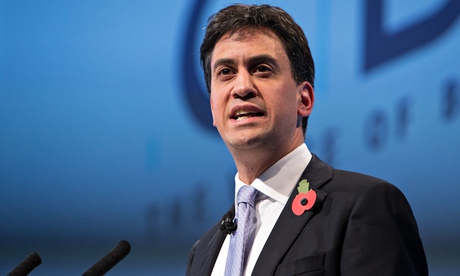 Ed Miliband addresses the CBI’s annual conference in London. ‘Given that the rightwing media simultaneously smear Ed Miliband while not reporting his arguments, how, pray, is Labour expected to have its voice heard?’ asks Stephen Jones. Photograph: Mark Thomas/Rex
Ed Miliband addresses the CBI’s annual conference in London. ‘Given that the rightwing media simultaneously smear Ed Miliband while not reporting his arguments, how, pray, is Labour expected to have its voice heard?’ asks Stephen Jones. Photograph: Mark Thomas/Rex ‘As we continue to move to online banking, there will be many new opportunities to get account numbers wrong,’ says David Flint. Photograph: Alamy
‘As we continue to move to online banking, there will be many new opportunities to get account numbers wrong,’ says David Flint. Photograph: Alamy Crosses in the Garden of Remembrance, Princes Street Gardens, Edinburgh, on 11 November 2014. Photograph: Jeff J Mitchell/Getty Images
Crosses in the Garden of Remembrance, Princes Street Gardens, Edinburgh, on 11 November 2014. Photograph: Jeff J Mitchell/Getty Images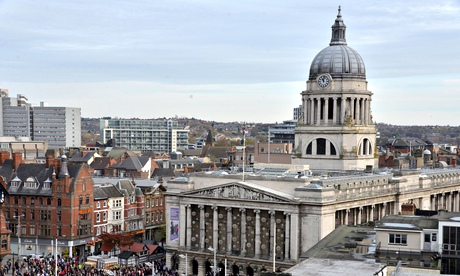 Nottingham: ‘We will never truly be able to tackle worklessness until we have local control of work-related benefits, employment support programmes and core skills funding,’ says Cllr Nick McDonald. Photograph: Lewis Stickley/PA
Nottingham: ‘We will never truly be able to tackle worklessness until we have local control of work-related benefits, employment support programmes and core skills funding,’ says Cllr Nick McDonald. Photograph: Lewis Stickley/PA






 ‘Recent findings suggest that what we do and what we think influence brain chemistry but also the structures of our brains. This line of approach wouldn’t have surprised Freud in the least.’ Sigmund Freud leaves Victoria Station after his arrival in London on 6 June 1938. Photograph: AFP/Getty Images
‘Recent findings suggest that what we do and what we think influence brain chemistry but also the structures of our brains. This line of approach wouldn’t have surprised Freud in the least.’ Sigmund Freud leaves Victoria Station after his arrival in London on 6 June 1938. Photograph: AFP/Getty Images George Clooney … not yet tidy enough to play Alan Johnson. Photograph: Alessandro Bianchi/Reuters
George Clooney … not yet tidy enough to play Alan Johnson. Photograph: Alessandro Bianchi/Reuters ‘Police didn’t seem to understand the idea of exploring the locality on foot purely for pleasure.’ Photograph: Tony Edenden
‘Police didn’t seem to understand the idea of exploring the locality on foot purely for pleasure.’ Photograph: Tony Edenden Former BBC reporter and documentary film-maker Olenka Frenkiel, whose experiences ‘provide yet another frustrating reminder of the dismissive way women are treated in broadcasting’. Photograph: Teri Pengilley
Former BBC reporter and documentary film-maker Olenka Frenkiel, whose experiences ‘provide yet another frustrating reminder of the dismissive way women are treated in broadcasting’. Photograph: Teri Pengilley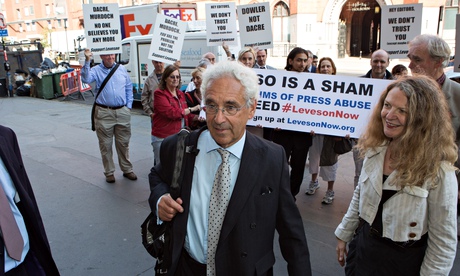 Alan Moses, chairman of the Independent Press Standards Organisation, the new press self-regulation body, encounters Hacked Off campaigners who say Ipso is not independent enough. Photograph: Daniel Leal-Olivas/PA
Alan Moses, chairman of the Independent Press Standards Organisation, the new press self-regulation body, encounters Hacked Off campaigners who say Ipso is not independent enough. Photograph: Daniel Leal-Olivas/PA Paul Kingsnorth, the author of The Wake. Photograph: Gary Calton
Paul Kingsnorth, the author of The Wake. Photograph: Gary Calton






 Actions that could address the inequities of the housing market include ‘stop regarding it as a market and begin regarding it as a necessity’. Photograph: Christopher Furlong/Getty
Actions that could address the inequities of the housing market include ‘stop regarding it as a market and begin regarding it as a necessity’. Photograph: Christopher Furlong/Getty Compensation for children affected by foetal alcohol syndrome matter ‘is about supporting the child born from that situation throughout their often very challenging life as a result of the injury received in the womb.’ Photograph: Danny Lawson/PA
Compensation for children affected by foetal alcohol syndrome matter ‘is about supporting the child born from that situation throughout their often very challenging life as a result of the injury received in the womb.’ Photograph: Danny Lawson/PA Survivors of typhoon Haiyan, which struck on November 8, 2013. Photograph: Chris McGrath/Getty Images
Survivors of typhoon Haiyan, which struck on November 8, 2013. Photograph: Chris McGrath/Getty Images Detail of an image from Hansel and Gretel. Might Johann Peter Hebel’s stories be less gruesome? Photograph: Alamy
Detail of an image from Hansel and Gretel. Might Johann Peter Hebel’s stories be less gruesome? Photograph: Alamy







 Party politics have become too presidential, say some, as controversy continues over Ed Miliband’s leadership of Labour. Photograph: Facundo Arrizabalaga/EPA
Party politics have become too presidential, say some, as controversy continues over Ed Miliband’s leadership of Labour. Photograph: Facundo Arrizabalaga/EPA Transport links need to be improved all over Britain. Photograph: Alamy
Transport links need to be improved all over Britain. Photograph: Alamy Sketch of the Rosetta lander superimposed on an image of the comet surface near the estimated point of touchdown. Photograph: European Space Agency/Getty Images
Sketch of the Rosetta lander superimposed on an image of the comet surface near the estimated point of touchdown. Photograph: European Space Agency/Getty Images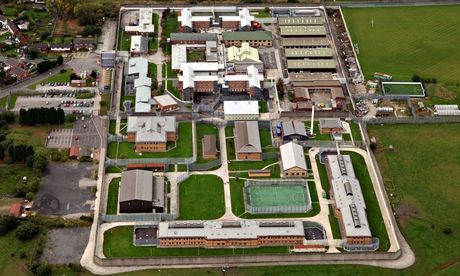 Hindley prison, a young offenders’ institution in Wigan. Photograph: A.P.S. (UK) / Alamy/Alamy
Hindley prison, a young offenders’ institution in Wigan. Photograph: A.P.S. (UK) / Alamy/Alamy The celebration of British beauty spots such as Lindisfarne must be balanced against the needs of country-dwellers (John Woodworth/Getty)
The celebration of British beauty spots such as Lindisfarne must be balanced against the needs of country-dwellers (John Woodworth/Getty)







 Roger Moore as secret agent 007 alongside Kristina Wayborn in Octopussy, 1983 . Photo: Alamy
Roger Moore as secret agent 007 alongside Kristina Wayborn in Octopussy, 1983 . Photo: Alamy






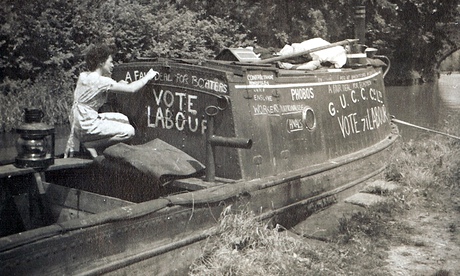 Sonia Rolt working on the Grand Union Canal in the run-up to the 1945 general election
Sonia Rolt working on the Grand Union Canal in the run-up to the 1945 general election Passengers walk to passport control at Heathrow’s Terminal 5. Photograph: Peter Macdiarmid/Getty Images
Passengers walk to passport control at Heathrow’s Terminal 5. Photograph: Peter Macdiarmid/Getty Images An England flag amid the crowd at the England v New Zealand rugby match, Twickenham, 8 November 2014. Photograph: Patrick Khachfe/JMP/REX
An England flag amid the crowd at the England v New Zealand rugby match, Twickenham, 8 November 2014. Photograph: Patrick Khachfe/JMP/REX The City of London at sunset. Photograph: Vladimir Zakharov/Getty Images/Moment Open
The City of London at sunset. Photograph: Vladimir Zakharov/Getty Images/Moment Open Sandwich production at the Greencore factory in Northampton
Sandwich production at the Greencore factory in Northampton A sign above a chemist shop. Photograph: Alamy
A sign above a chemist shop. Photograph: Alamy






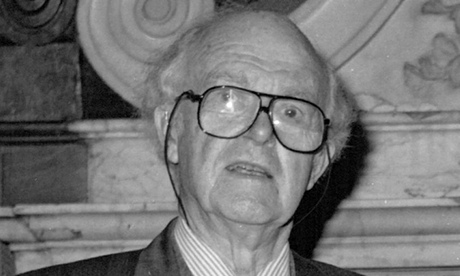 Nigel Walker’s lectures were considered Oxford’s best
Nigel Walker’s lectures were considered Oxford’s best
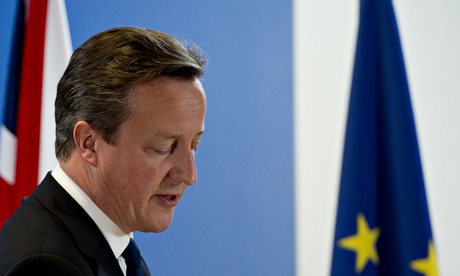 David Cameron has warned that ‘red lights are flashing on the world economy’. Has he finally been persuaded that the Labour government wasn’t to blame for the crash?’ asks Ken Vines. Photo: Alain Jocard/AFP/Getty
David Cameron has warned that ‘red lights are flashing on the world economy’. Has he finally been persuaded that the Labour government wasn’t to blame for the crash?’ asks Ken Vines. Photo: Alain Jocard/AFP/Getty ‘In terms of reducing adult deaths and money spent, the evidence is that the NHS is one of the most effective and efficient services in the world.’ Photograph: Pulse/PA
‘In terms of reducing adult deaths and money spent, the evidence is that the NHS is one of the most effective and efficient services in the world.’ Photograph: Pulse/PA A man waves an Islamic State flag in Syria. ‘The government’s latest proposals for dealing with people suspected of going to fight in Syria would extend punishment without trial.’ Photograph: Reuters
A man waves an Islamic State flag in Syria. ‘The government’s latest proposals for dealing with people suspected of going to fight in Syria would extend punishment without trial.’ Photograph: Reuters
 ‘Fantastic achievement’ … The 67P comet as seen from the Philae lander. Photograph: ESA/Getty
‘Fantastic achievement’ … The 67P comet as seen from the Philae lander. Photograph: ESA/Getty




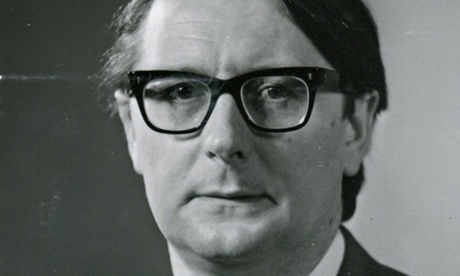 Derek Robinson was an external adviser to South Africa’s presidential labour market commission. Photograph: Magdalen College, Oxford
Derek Robinson was an external adviser to South Africa’s presidential labour market commission. Photograph: Magdalen College, Oxford The Jessica Ennis stand at Bramall Lane, Sheffield. Jessica Ennis-Hill wants her name to be removed from the stand if the club choose to re-sign Ched Evans. Photograph: Anna Gowthorpe/PA
The Jessica Ennis stand at Bramall Lane, Sheffield. Jessica Ennis-Hill wants her name to be removed from the stand if the club choose to re-sign Ched Evans. Photograph: Anna Gowthorpe/PA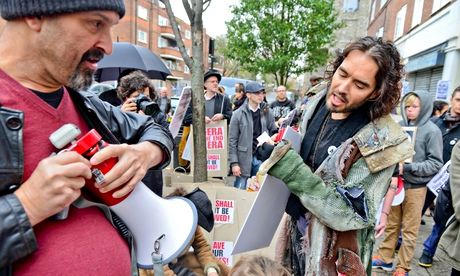 Russell Brand at a protest to save social housing on the New Era estate in east London, which was bought this year by the US-based company Westbrook Partners. Photograph: Jules Annan/Barcroft Media/Jules Annan / Barcroft Media
Russell Brand at a protest to save social housing on the New Era estate in east London, which was bought this year by the US-based company Westbrook Partners. Photograph: Jules Annan/Barcroft Media/Jules Annan / Barcroft Media A plane prepares to land at Gatwick. Photograph: Gareth Fuller/PA
A plane prepares to land at Gatwick. Photograph: Gareth Fuller/PA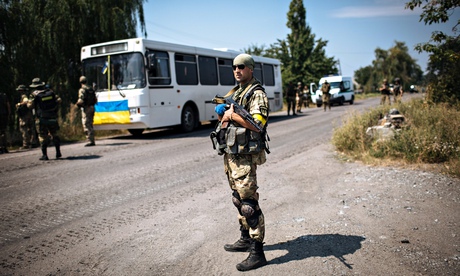
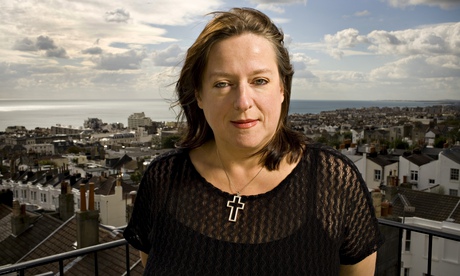 Julie Burchill … ‘Why does this unimportant writer get so much attention?’ Without all this fanfare, who would even have been aware of her book?’ Photograph: Tom Oldham/Rex Features/Tom Oldham / Rex Features
Julie Burchill … ‘Why does this unimportant writer get so much attention?’ Without all this fanfare, who would even have been aware of her book?’ Photograph: Tom Oldham/Rex Features/Tom Oldham / Rex Features A previous student demonstration against sharp rises university tuition fees, funding cuts and high youth unemployment in central London on 21 November 2012. Photograph: Ben Stansall/AFP/Getty Images
A previous student demonstration against sharp rises university tuition fees, funding cuts and high youth unemployment in central London on 21 November 2012. Photograph: Ben Stansall/AFP/Getty Images









 ‘Abolish the Strasbourg parliament,’ suggests John Rowe. Photograph: Frederick Florin/AFP/Getty Images Photograph: Frederick Florin/AFP/Getty Images
‘Abolish the Strasbourg parliament,’ suggests John Rowe. Photograph: Frederick Florin/AFP/Getty Images Photograph: Frederick Florin/AFP/Getty Images Peabody Trust housing for key workers in Baron’s Place, London. Photograph: Frank Baron for the Guardian
Peabody Trust housing for key workers in Baron’s Place, London. Photograph: Frank Baron for the Guardian
 ‘I was sacked from three jobs (for instance, for nibbling at the rounds of cheese when working in a grocer’s), yet each time was able to walk straight into another job,’ writes Dr Neil Redfern. Photograph: David Sillitoe for the Guardian
‘I was sacked from three jobs (for instance, for nibbling at the rounds of cheese when working in a grocer’s), yet each time was able to walk straight into another job,’ writes Dr Neil Redfern. Photograph: David Sillitoe for the Guardian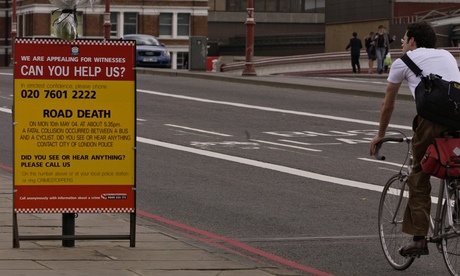 A road accident sign in London. There are more than a million road deaths worldwide each year, writes the Rev Barry Parker. Photograph: Antonio Olmos
A road accident sign in London. There are more than a million road deaths worldwide each year, writes the Rev Barry Parker. Photograph: Antonio Olmos Does Myleene Klass face a choice between downsizing and paying a mansion tax?
Does Myleene Klass face a choice between downsizing and paying a mansion tax?







 Professor Janet Beer, vice-chancellor of Oxford Brookes University, is one of only 35 women among a total of 170 higher education vice-chancellors. Photograph: Anna Gordon
Professor Janet Beer, vice-chancellor of Oxford Brookes University, is one of only 35 women among a total of 170 higher education vice-chancellors. Photograph: Anna Gordon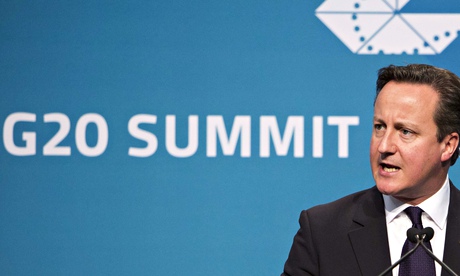 David Cameron in Brisbane: what was his gloating over the economies of the eurozone supposed to achieve? Photograph: Glenn Hunt/AFP/Getty Images
David Cameron in Brisbane: what was his gloating over the economies of the eurozone supposed to achieve? Photograph: Glenn Hunt/AFP/Getty Images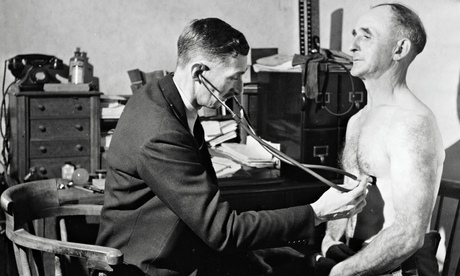 ‘Don’t damn all GP surgeries because of your personal bad experience: fdind a new practice’ – Corinne Haynes. Photograph: Popperfoto/Getty Images
‘Don’t damn all GP surgeries because of your personal bad experience: fdind a new practice’ – Corinne Haynes. Photograph: Popperfoto/Getty Images



 The Occupy London tent protest outside St Paul’s Cathedral. Photograph: Jack MacDonald for the Observer
The Occupy London tent protest outside St Paul’s Cathedral. Photograph: Jack MacDonald for the Observer The Britain Needs a Pay Rise demonstration in London. Photograph: Dave Evans/ Demotix/Corbis
The Britain Needs a Pay Rise demonstration in London. Photograph: Dave Evans/ Demotix/Corbis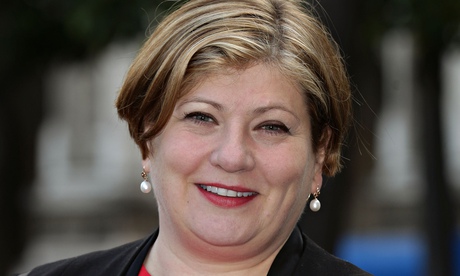 Emily Thornberry: lost her shadow cabinet job over a tweet. Photograph: Yui Mok/PA
Emily Thornberry: lost her shadow cabinet job over a tweet. Photograph: Yui Mok/PA Very few programmes ever feature the magical beaches of Mozambique. Photograph: Gary Cook/Alamy
Very few programmes ever feature the magical beaches of Mozambique. Photograph: Gary Cook/Alamy Despite claims by the government that it wants to protect the countryside, its planning reforms have facilitated development in rural communities
Despite claims by the government that it wants to protect the countryside, its planning reforms have facilitated development in rural communities













 Prince Charles is given a tour of the National Heritage Garden by Raymond Blanc at Belmond Le Manoir aux Quat’Saisons in Great Milton, Oxfordshire, on 21 November 2014. Photograph: Eamonn M. McCormack/Getty Images
Prince Charles is given a tour of the National Heritage Garden by Raymond Blanc at Belmond Le Manoir aux Quat’Saisons in Great Milton, Oxfordshire, on 21 November 2014. Photograph: Eamonn M. McCormack/Getty Images ‘Strong trade unions must have a central role in a fairer, safer, more secure workplace,’ says Stephen Cavalier. Photograph: Alamy
‘Strong trade unions must have a central role in a fairer, safer, more secure workplace,’ says Stephen Cavalier. Photograph: Alamy ‘Assaults, fights, and self-harmings are not all equally violent,’ argue Professor Nicholas Baigent and Dr Magda Osman. Photograph: Martin Godwin
‘Assaults, fights, and self-harmings are not all equally violent,’ argue Professor Nicholas Baigent and Dr Magda Osman. Photograph: Martin Godwin The medical innovation bill could pose a threat to patient safety, say Dr Michael Powers QC and Dr Anthony Barton. Photograph: Andrew Matthews/PA
The medical innovation bill could pose a threat to patient safety, say Dr Michael Powers QC and Dr Anthony Barton. Photograph: Andrew Matthews/PA




 Barack Obama speaks about his executive action on US immigration policy, 21 November 2014. Photograph: Ethan Miller/Getty Images
Barack Obama speaks about his executive action on US immigration policy, 21 November 2014. Photograph: Ethan Miller/Getty Images ‘I can assure you, for those on the receiving end, it certainly felt like an increase in the total amount of violence,’ Nick Hardwick says of HMP Elmley. Photograph: Mark Harvey/Alamy
‘I can assure you, for those on the receiving end, it certainly felt like an increase in the total amount of violence,’ Nick Hardwick says of HMP Elmley. Photograph: Mark Harvey/Alamy The philosopher Ludwig Wittgenstein, who worked at Newcastle’s Royal Victoria Infirmary during the second world war. Photograph: Hulton Getty
The philosopher Ludwig Wittgenstein, who worked at Newcastle’s Royal Victoria Infirmary during the second world war. Photograph: Hulton Getty







 Broken glass on ground where ‘I love Ferguson’ is written. Ferguson, Missouri. Photograph: Yin Bogu/Xinhua Press/Corbis
Broken glass on ground where ‘I love Ferguson’ is written. Ferguson, Missouri. Photograph: Yin Bogu/Xinhua Press/Corbis Soldiers of the English infantry in France, running out of their trenches at the signal to assault at the Somme. Photograph: Fototeca Gilardi/Getty Images
Soldiers of the English infantry in France, running out of their trenches at the signal to assault at the Somme. Photograph: Fototeca Gilardi/Getty Images Tony Blair attends the second annual Save the Children Illumination Gala at the Plaza Hotel in New York. Photograph: Evan Agostini/Invision/AP
Tony Blair attends the second annual Save the Children Illumination Gala at the Plaza Hotel in New York. Photograph: Evan Agostini/Invision/AP Britain’s international development secretary Justine Greening talking to medics at RAF Brize Norton prior to them flying to Freetown, Sierra Leone, to help tackle the Ebola crisis. Photograph: Cpl Richard Cave/AFP/Getty Images
Britain’s international development secretary Justine Greening talking to medics at RAF Brize Norton prior to them flying to Freetown, Sierra Leone, to help tackle the Ebola crisis. Photograph: Cpl Richard Cave/AFP/Getty Images






 Bernard Stonehouse (third from left) celebrating Christmas Day, 1947, on Stonington Island
Bernard Stonehouse (third from left) celebrating Christmas Day, 1947, on Stonington Island Stonehouse on a dog kennel roof with three of his expedition’s dogs in the Antarctic, 1947
Stonehouse on a dog kennel roof with three of his expedition’s dogs in the Antarctic, 1947 Andrew Mitchell. ‘I can assure him we will be able to find a room for him where I work – a charity-run hostel for homeless people in Birmingham.’ writes Graham Hart. Photograph: Andy Rain/EPA
Andrew Mitchell. ‘I can assure him we will be able to find a room for him where I work – a charity-run hostel for homeless people in Birmingham.’ writes Graham Hart. Photograph: Andy Rain/EPA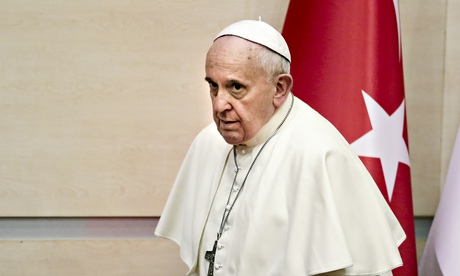 ‘The Bible exhorts society to ‘Honour thy father and mother’, not, as Pope Francis has been portrayed as doing, dissing the lot,’ writes Hilary Cooper. Photograph: Markus Schreiber/AP
‘The Bible exhorts society to ‘Honour thy father and mother’, not, as Pope Francis has been portrayed as doing, dissing the lot,’ writes Hilary Cooper. Photograph: Markus Schreiber/AP Ed Miliband. ‘While attempts are being made to portray Labour as a remote elite, it’s worth remembering that 85% of Labour MPs elected or re-elected in 2010 had been to state schools,’ writes Janet Dobson. Photograph: Peter Macdiarmid/Getty Images
Ed Miliband. ‘While attempts are being made to portray Labour as a remote elite, it’s worth remembering that 85% of Labour MPs elected or re-elected in 2010 had been to state schools,’ writes Janet Dobson. Photograph: Peter Macdiarmid/Getty Images







 Imported coal on a quay at Lianyungang, China. Photograph: Imaginechina/Corbis
Imported coal on a quay at Lianyungang, China. Photograph: Imaginechina/Corbis Humanitarian assistance is vital to help struggling nations, but there is concern about how the funds are distributed (Louis Leeson/save the children uk/pa)
Humanitarian assistance is vital to help struggling nations, but there is concern about how the funds are distributed (Louis Leeson/save the children uk/pa)





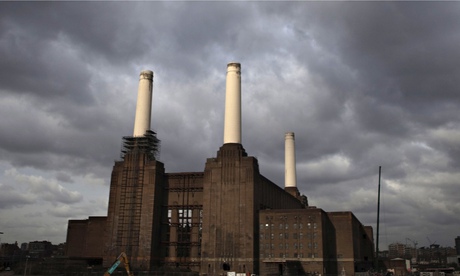 Casino property speculation: a £1m studio flat being built in the old Battersea power station, above, is going back on the market at £1.5m. Photograph: Finbarr O’Reilly/Reuters
Casino property speculation: a £1m studio flat being built in the old Battersea power station, above, is going back on the market at £1.5m. Photograph: Finbarr O’Reilly/Reuters ‘No one can lead a healthy, productive and dignified life if they do not have access to safe drinking water.’ Photograph: Ahmed Jallanzo/EPA
‘No one can lead a healthy, productive and dignified life if they do not have access to safe drinking water.’ Photograph: Ahmed Jallanzo/EPA Disappointed at Smith commission tax proposals: Scottish first minister Nicola Sturgeon. Photograph: Andy Buchanan/AFP/Getty Images
Disappointed at Smith commission tax proposals: Scottish first minister Nicola Sturgeon. Photograph: Andy Buchanan/AFP/Getty Images

